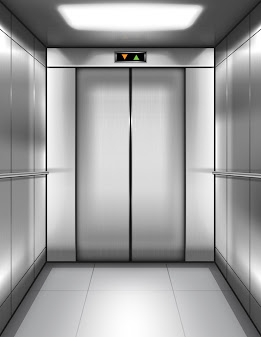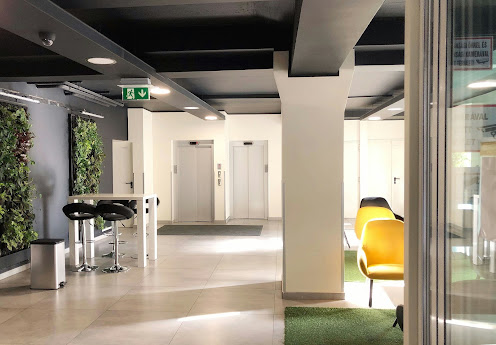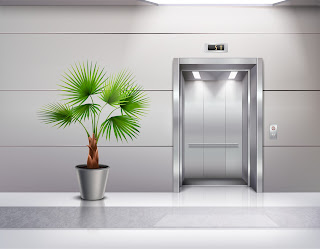Which Lift Is Right for You?
Elevators, or as they are commonly referred to in many parts of the world, lifts, have become an indispensable part of modern life. They are ubiquitous in high-rise buildings, residential complexes, malls, and even some homes. The versatility of elevators, coupled with the convenience they offer, has made them an integral part of our daily lives. In this article, we'll explore various elevator types and help you decide which one is right for your specific needs.
Elevator Types
Passenger Elevators:
Passenger elevators are the most common type of elevators that you
encounter in commercial and residential buildings. These elevators are designed
to transport people efficiently between different floors. They come in various
sizes, accommodating different passenger capacities. Passenger elevators are
often equipped with stylish interiors and advanced safety features, making them
an ideal choice for buildings with moderate to high foot traffic.
Freight Elevators:
When it comes to transporting heavy or bulky items between floors,
passenger elevators may not be suitable. Freight elevators, on the other hand,
are specifically designed for this purpose. These robust elevators are often
used in warehouses, factories, and industrial facilities. They have a higher
weight capacity, durable interiors, and features such as reinforced doors to
withstand the demands of transporting heavy cargo.
Home Elevators:
Elevators are not limited to commercial and industrial settings.
Many homeowners are now opting for home elevators to enhance accessibility and
convenience within their residences. Home elevators come in a variety of
designs, including traditional, modern, and even eco-friendly options. They can
be customized to blend seamlessly with the interior of your home. These
elevators provide an excellent solution for individuals with mobility issues or
those who simply desire an easier way to move between floors.
Dumbwaiters:
Dumbwaiters are small, service elevators that are designed for
transporting goods such as food, laundry, or small items between floors. They
are often found in restaurants, hotels, and homes. Dumbwaiters are especially
useful in the service industry, where the efficient movement of items is
crucial. They are smaller in size, making them ideal for tight spaces.
Hospital Elevators:
Hospitals have unique elevator needs due to the transportation of
patients on stretchers and medical equipment. Hospital elevators are designed
to accommodate these requirements. They often have larger dimensions, and their
interiors are equipped with features that ensure a smooth and gentle ride for
patients. Safety is paramount in these elevators, with features like emergency
buttons and spacious interiors.
Elevator Services
Now that you're familiar with the various elevator types, it's
essential to consider elevator services. Elevator maintenance and service play
a critical role in ensuring the reliability and safety of your elevator system.
Regular maintenance by professional lift services can extend the lifespan of
your elevator and minimize the risk of unexpected breakdowns. Here are some key
aspects of elevator services to consider:
Regular Inspections:
Scheduled inspections by qualified technicians are essential to
identify and address potential issues before they lead to costly repairs.
Regular check-ups help maintain the safety and functionality of your elevator.
Emergency Repairs:
Despite the best maintenance efforts, elevators may encounter
unexpected problems. Having access to prompt and efficient emergency repair
services is crucial to minimize downtime and ensure the safety of elevator
users.
Modernization:
If you own an older elevator system, modernization can enhance its performance, energy efficiency, and safety. Lift services can assess the need for modernization and provide recommendations.
Choosing the Right Elevator
Now that you're aware of the elevator types and services
available, let's discuss how to choose the right elevator for your needs. Here
are some key factors to consider:
Intended Use:
Think about the primary purpose of the elevator. Is it for
transporting people, heavy goods, or both? Understanding the intended use will
help you narrow down the options.
Space and Location:
The available space in your building or home is a significant
factor. Some elevators may require more space for installation, while others
are designed to fit into compact areas.
Aesthetics:
Consider the aesthetic requirements of your building. Passenger
and home elevators often come with customizable interiors and finishes,
allowing you to match the elevator to your decor.
Safety Features:
Safety should always be a top priority. Ensure the elevator you
choose comes with essential safety features, such as emergency buttons,
interlocks, and the latest safety technologies.
Maintenance Needs:
Regular maintenance is critical for elevator longevity. Ensure
that you can access reliable elevator services to keep your lift in top
condition.
Conclusion
Elevators, or lifts, are not one-size-fits-all solutions. The right
elevator for you depends on your specific needs and preferences. Whether you
need a passenger elevator, a freight elevator, a home elevator, or another
specialized type, consider factors such as purpose, space, aesthetics, safety,
and maintenance when making your decision. Elevators have transformed the way
we navigate multi-story buildings, making them safer and more accessible than
ever before. With the right choice and maintenance, your elevator will continue
to serve you reliably for years to come.

.jpg)


Comments
Post a Comment